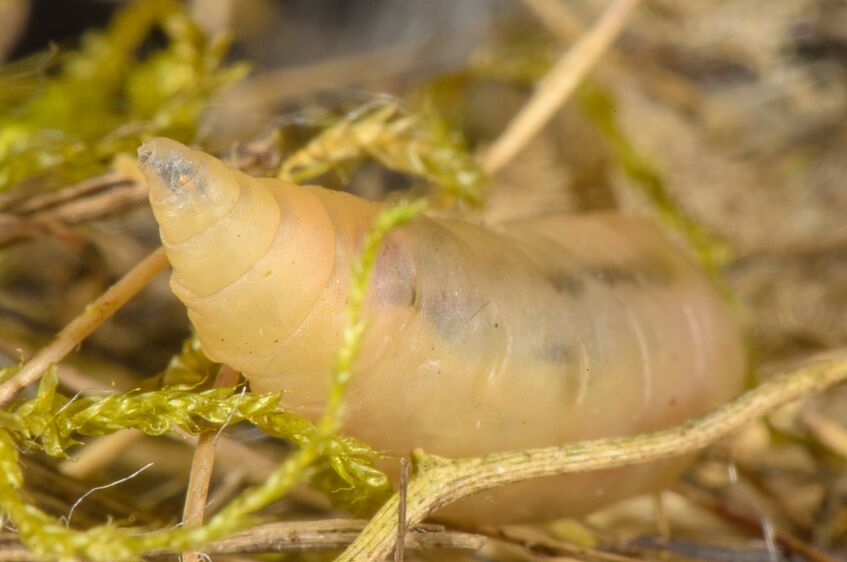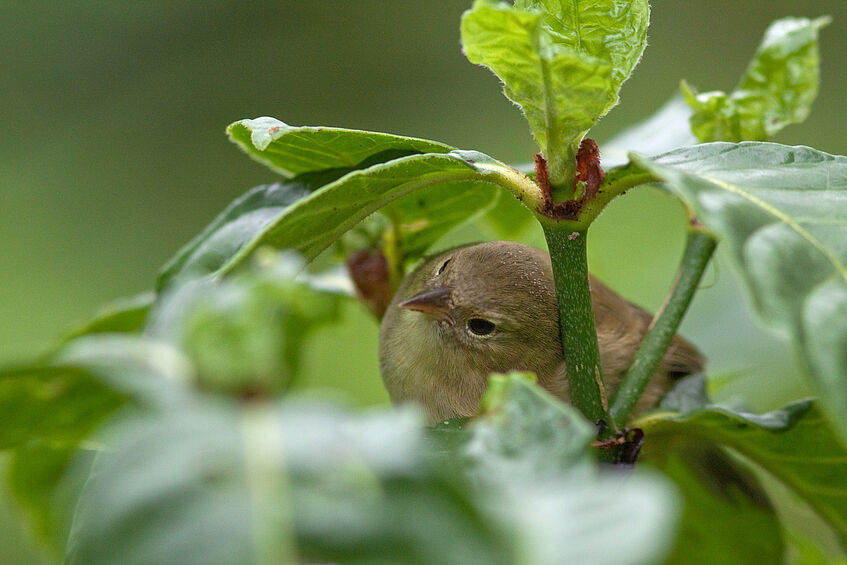Host-Parasite Interaction
Projects:
- FWF P 26556: The impact of an exotic parasite on Darwin's finches (Grant DOI 10.55776/P26556)
- FWF P 32555: Dynamic interaction between an alien parasite and its hosts (Grant DOI 10.55776/P32555)

Larva of Philornis downsi (Avian vampire fly)

Warbler Finch, Certhidea olivacea (c) M. Dvorak
Invasive species are a key driver of global change and are responsible for many bird extinctions on islands. Systems recently invaded by parasites provide unique scientific opportunities to monitor the dynamics between hosts and parasites in the early stages of their interaction. The parasitic Avian Vampire Fly (Philornis downsi) and its hosts, Darwin's finches, on the Galápagos Islands form an excellent model for studying these processes.
The flies lay eggs in bird nests, and their larvae feed on the blood of nestlings, significantly reducing fledgling success and leading to population declines. The impact of this parasite varies between finch species, with the number of larvae per nest increasing in some species while declining in others, suggesting a dynamic system. A long-term dataset shows a shift in the parasite’s life cycle: before 2010, larvae were found only in nests with chicks, but now they also appear in incubating nests, feeding on adult females. We hypothesize that high competition among flies on the Galápagos may promote earlier attacks on nests, and we are investigating the factors driving this life cycle shift.
We also explore why chick mortality rates vary between parasitized finch species. Our findings are being used by the international Philornis working group to develop strategies for controlling this invasive parasitic fly, which poses a major threat to the avifauna of the Galápagos.
